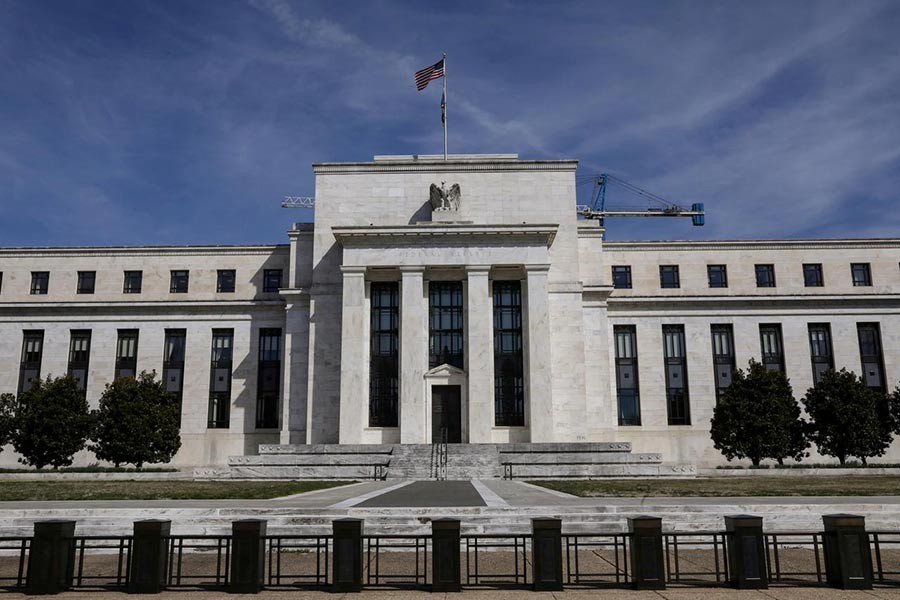Like storm clouds on the horizon, signs of a global economic slowdown are gathering ominously. In the United States, the sugar high generated by President Donald Trump's massive 2017 tax cut has peaked and is now rapidly waning, without triggering the promised investment boom. In Europe, the ongoing Brexit farce threatens severe economic disruption, even chaos, if the United Kingdom (UK) cannot conclude a deal with the European Union (EU) before withdrawing from the bloc at the end of October. And in China, growth is unmistakably slowing.
Lurking behind all these problems is the "Tariff Man's" trade war, which has led economists to worry about a recession as early as next year. Ordinarily, governments facing an economic downturn would look first to monetary policy, relying on central banks to force down interest rates in the hope of encouraging more borrowing and spending. Yet the tools that monetary policymakers have long deployed to stabilise markets no longer seem up to the task. The time has come to consider a new approach to macroeconomic management.
A decade ago, global interest rates were lowered dramatically to stave off the threat of Great Depression II. But, 11 years after the financial crisis, rates still have not bounced back. In all advanced economies, they remain at historically low levels - and in the case of Switzerland, the eurozone, and Japan, they are below zero. This means that the major central banks will have little to no room for new cuts when they would normally rely on them.
Central bankers have thus begun to call on fiscal policymakers to do more. As US Federal Reserve Chair Jerome Powell recently put it, "It's not good to have monetary policy be the main game in town, let alone the only game in town." In practice, a greater role for fiscal policy would mean that tax cuts and spending increases would accompany interest-rate reductions in the event of another downturn.
But there is a problem with this approach: politics. Whereas most central banks are formally independent, and thus are not obliged to take direct orders from elected officials, those in charge of fiscal policy enjoy no such luxury. Budgets are made by politicians, who have no choice but to worry about their prospects for re-election. How can they justify deficit-financed spending that would add to the public debt? Won't they be tarred as irresponsible, or worse?
Most experts now agree that former US President Barack Obama's 2009 stimulus programme played a vital role in the post-2008 recovery. Still, it cost the Democrats dearly in the 2010 midterm congressional election. Should expansive fiscal policy be needed again, elected officials will be wary of the potential backlash.
But what if fiscal policy was as depoliticised as monetary policy? An autonomous public agency with a defined range of fiscal-policymaking powers would be free to respond proactively to fluctuations in the economy. Like an independent central bank, a "fiscal Fed" could be staffed with politically disinterested professionals operating within limits established by statute. Ultimately, it would still be fully accountable to elected officials, but it would be able to make crucial budget decisions much faster than what is possible today.
To be sure, there would be little room for a new delegated authority to appropriate additional funds. After all, most of the expenditure side of the budget is nondiscretionary or relatively "sticky," and thus difficult to start or stop on short notice. On the revenue side, however, a fiscal Fed could accomplish quite a lot through the levers of taxes and transfers. Its overarching objective would be to vary tax-withholding rates and transfer payments at the margin as needed, much as what central banks do with interest rates.
In creating such an agency, the political authorities would set basic goals and parameters, and elected officials would exercise active oversight on a continuing basis, to ensure responsible behaviour. But within its statutory limits, the agency would be authorised to implement timely adjustments to the government's revenues in response to changing economic conditions.
The scope of potential adjustments could be agreed in advance as part of the annual budget process, leaving the fiscal Fed with sole authority to determine the magnitude and timing of specific changes. Alternatively, the agency could be granted greater latitude to make such decisions on its own, provided the legislature does not issue a veto within a specified time period. At any rate, there are many ways to reconcile democratic accountability with depoliticised policymaking.
Needless to say, the same kind of objections that apply to central-bank independence would be made against a fiscal Fed. But there is nothing unusual about representative governments delegating key areas of policymaking to professionals. There are always tradeoffs between democratic prerogative and technocratic necessity, and different countries draw different lines between the two domains.
In the US, no one questions the legitimacy of independent agencies like the Securities and Exchange Commission or the Food and Drug Administration. There is no reason why an autonomous fiscal agency could not operate in a similar fashion. As long as its mandate is carefully circumscribed and its operations closely monitored, a fiscal Fed is an idea worth considering.
Benjamin J. Cohen, Professor of International Political Economy at the University of California, Santa Barbara, is the author of Currency Power: Understanding Monetary Rivalry.
Copyright: Project Syndicate, 2019.
www.project-syndicate.org
distribution@project-syndicate.org


